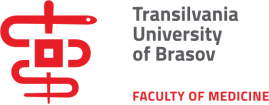For Non-EU graduates
Doctors who are citizens of a state other than the member states of the European Union, the states belonging to the European Economic Area or the Swiss Confederation can apply for medical residency training to the Ministry of National Education, in compliance with the legal provisions. They can apply for training in one of the medical disciplines provided in the Nomenclature of medical specialties and included in our curriculum. The list of specialties and residency programme coordinators will be updated and sent to the International Relations Office at the beginning of each academic year. The language of the specialisation training is Romanian.
Non-EU candidates will be enrolled for the postgraduate programme only after graduating the preparatory year of Romanian language or on the basis of a certificate proving Romanian language proficiency. The length of the preparatory course for postgraduate residency studies is at least 6 months. The higher education institutions that organise the preparatory course for learning the Romanian language are accredited by the Ministry of National Education (www.edu.ro). Exceptions: candidates who have documents (diplomas and certificates) or study certificates attesting at least three consecutive years completed in an accredited higher education institution in Romania.
Documents required for application:
- • The application form requesting admission to postgraduate specialisation studies, with the prior approval of the residency coordinator and of the Dean of the Faculty of Medicine - download the application form;;
- • Application for the letter of acceptance with all fields completed, in two copies (standardised form in French or English);
- • University diploma (or equivalent certificate for recent graduates) – original documents and certified copy;
- • Transcripts of records (diploma supplements) related to the completed studies – original documents and certified copies;
- • Birth certificate – copy and certified translation (2 copies);
- • Copy of the passport, pages 1,2,3,4. Passport must be valid for nine months beyond the application date (2 copies);
- • Medical certificate (in an international language), attesting that the candidate does not suffer from contagious diseases or other conditions which are incompatible with this career (2 copies);
- • certificate proving Romanian language proficiency, issued by the Centre for Modern Languages at Transilvania University of Brașov;
- • 2 photographs, size ¾ cm.
The applications are submitted to the International Relations Office between October 1 and October 30 of each year for the residency programme commencing on the 1st of January the following year.
The University evaluates the applications and communicates to the Ministry of National Education - General Directorate for International Relations the list of candidates to be issued with the letter of acceptance. For details related to the fee and visa, contact the International Relations Office.
Upon registration, the candidates will present the original documents from the application, for their certification by the Romanian Embassy in the issuing country or certified by the competent authorities of those countries with the Hague Apostille, if the previous studies were not performed in Romania, in a European Union country or in accordance with the agreements of legal assistance concluded by Romania with third countries.
Residency training begins on the 1st of January each year. The speciality training is done with the observance of the established duration and curriculum in Romania. The specialty exam is organized by the Ministry of Health, at the end of the training, in compliance with the conditions provided for the completion of the residency, in a joint session with Romanian citizens (twice a year, March and October).
La înmatriculare, candidații vor prezenta documentele din Dosarul de candidatură, în original, vizate spre autentificare de ambasada României din țara emitentă sau apostilate Haga, dacă studiile precedente nu au fost efectuate în România, într-o țară a Uniunii Europene ori în conformitate cu acordurile de asistență juridică încheiate de România cu state terțe.
Pregătirea în rezidențiat începe la 1 ianuarie a fiecărui an. Specializarea se face cu respectarea duratei și curriculumului de pregătire prevazute pentru rezidențiatul în specialitatea respectivă în România. Examenul de specialitate se organizează de către Ministerul Sănătății, la sfârșitul specializării, cu respectarea condițiilor prevazute pentru finalizarea rezidentiatului, în sesiune comună cu cetățenii români (de 2 ori pe an, martie și octombrie).



